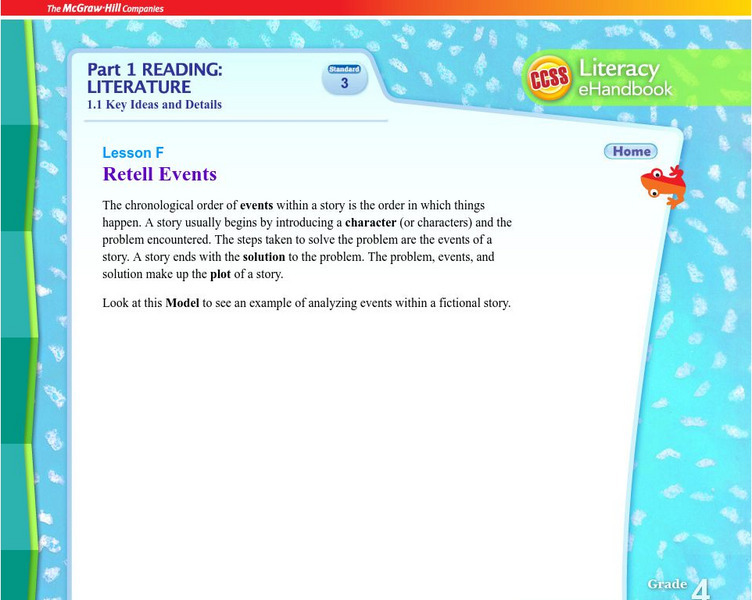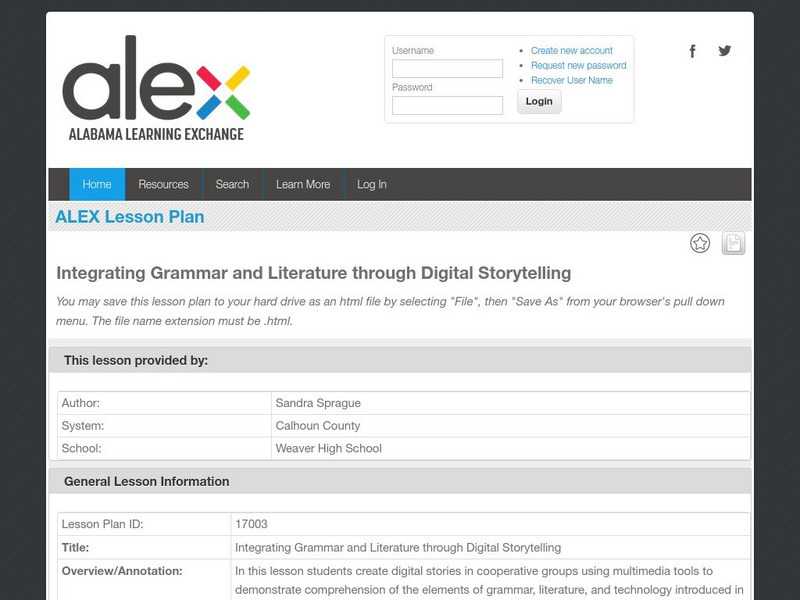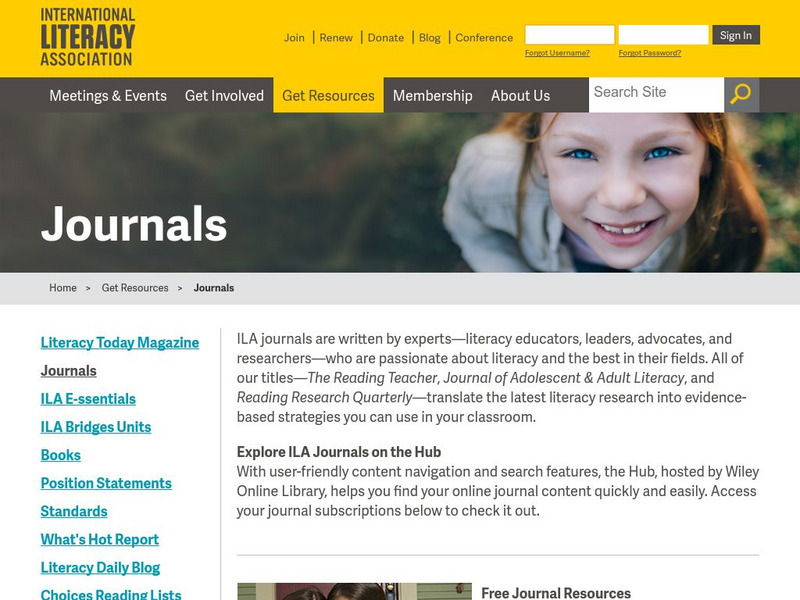Curated OER
Mc Graw Hill: Part 1 Reading: Literature: Describe a Setting
Do you know how to find the setting of a story? Learn how to find the when and where a story took place on this site.
Curated OER
Mc Graw Hill: Part 1 Reading: Literature: Retell Events
Retelling a story shows a student's comprehension. Use this site to test your knowledge of how to retell events that happen in a story.
Curated OER
Mc Graw Hill: Structure Within a Story
Learn why structure is important when organizing a story then read an excerpt from the story "Three over Four" to practice how structure helps to develop the story's theme, setting, and plot.
Curated OER
Mc Graw Hill: Identify Author's Point of View
Learn the techniques an author uses to share his or her point of view on a subject then practice identifying an author's purpose on your own.
Curated OER
Mc Graw Hill: Part 2 Reading: Informational Text: Author Point of View
Learn four questions you can ask while reading an informational text to determine the author's point of view. Includes practice worksheet.
Other
Meeting Characters in Literature: Point of View
A very clear explanation of narrator and point of view in literature. Because of the structure of the page and the use of highlighting, upper elementary students should be able to use this to help them understand the concepts, as well as...
Other
Mesa Public Schools: Author's Point of View [Pdf]
Chart defines the three different points of view authors can use to express their ideas.
Other
Kid Bibs: Effective Use of Textbook Features
Here, parents and teachers can find tips for helping young readers understand the expository writing found in textbooks.
Alabama Learning Exchange
Alex: Grammar and Literature Through Digital Storytelling
In this lesson students create digital stories in cooperative groups using multimedia tools to demonstrate comprehension of the elements of grammar, literature, and technology introduced in the lesson. Students become actively involved...
ReadWriteThink
Read Write Think: The Big Bad Wolf: Analyzing Point of View in Texts
In this lesson, learners will research a fairy tale and analyze it based on the point of view. CCSS.ELA-Literacy.CCRA.R.6
Quia
Quia: Elements of Literature: Rags to Riches
Answer the 15 questions in this game about literary elements for the prize of fame and fortune. Java is required.
Quia
Quia: Rags to Riches: Literary Elements
Show off your knowledge of literary elements by playing this game. Just answer 15 questions correctly, and be the big winner.
Other
Georgia Perimeter: Choosing and Writing for an Audience
This resource goes extensively into the importance of establishing an audience when writing. It also defines types, how to choose, and how to write for an audience.
Annenberg Foundation
Annenberg Learner: Journey North: Reading Strategies: Identify Author's Viewpoint
This reading resource discusses the strategy of identifying an author's viewpoint. A list of guiding questions is provided to help students as they analyze the author's viewpoint.
University of Victoria (Canada)
The U Vic Writer's Guide: Literary Term: Point of View
From the University of Victoria's writing tutorial site, this section provides a multiple-paragraph discussion of point of view.
International Reading Association
Reading Online: Content Area Literacy Lessons Go High Tech
Research and ideas about the use of technology to aid in reaching content area literacy goals.
Houghton Mifflin Harcourt
Holt, Rinehart and Winston: Elements of Literature: Narrator Chart [Pdf]
Provides an overview of the importance of a narrator in a text and some brief exercises for analysis. Helps students learn more about the role of the narrator in literature, his/her voice, and influence on other characters and events.
Other
Concepts and Practices for Writing Courses: Interpreting Literature
This tutorial surveys the way readers should interpret literature or text in symbols, syntax, meaning, and the like. The article features a Literary Toolkit for Analyzing Literature.
E Reading Worksheets
E Reading Worksheets: Story Structure Activities
This learning module provides remediation and extra practice with analyzing story structures. Reinforcement for story structures is provided through the two PowerPoint lessons, three quizzes, and four different worksheets.
E Reading Worksheets
E Reading Worksheets: Point of View Activities
This learning module provides assorted activities for teaching and reviewing the concept of point of view with students. The following activities are provided: point of view comic strip; point of view flash cards; point of view practice...
Science Education Resource Center at Carleton College
Serc: Reading Reflections
An exercise consisting of three reflective questions that students respond to after completing an assigned reading in any curriculum area. The task promotes skills in critical thinking and self-assessment.
Read Works
Read Works: Jumping Bodies
[Free Registration/Login Required] Students read a story about a boy named Charles who has the ability to switch bodies. A question sheet is available to help students build skills in reading comprehension.
E Reading Worksheets
E Reading Worksheets: Author's Purpose: Reading Test 2
A ten-question quiz on identifying whether an author's purpose is to persuade, inform, or entertain the reader. Students are asked to type an explanation for each answer. Results can be printed, saved, or emailed.
E Reading Worksheets
E Reading Worksheets: Author's Purpose: Reading Test 3
A ten-question quiz on identifying whether an author's purpose is to persuade, inform, or entertain the reader. Students are asked to type an explanation for each answer. Results can be printed, saved, or emailed.















![Holt, Rinehart and Winston: Elements of Literature: Narrator Chart [Pdf] Graphic Holt, Rinehart and Winston: Elements of Literature: Narrator Chart [Pdf] Graphic](http://content.lessonplanet.com/resources/thumbnails/410058/large/bwluav9tywdpy2symdiwmduymc03nzcylxblamtwbi5qcgc.jpg?1589985144)

